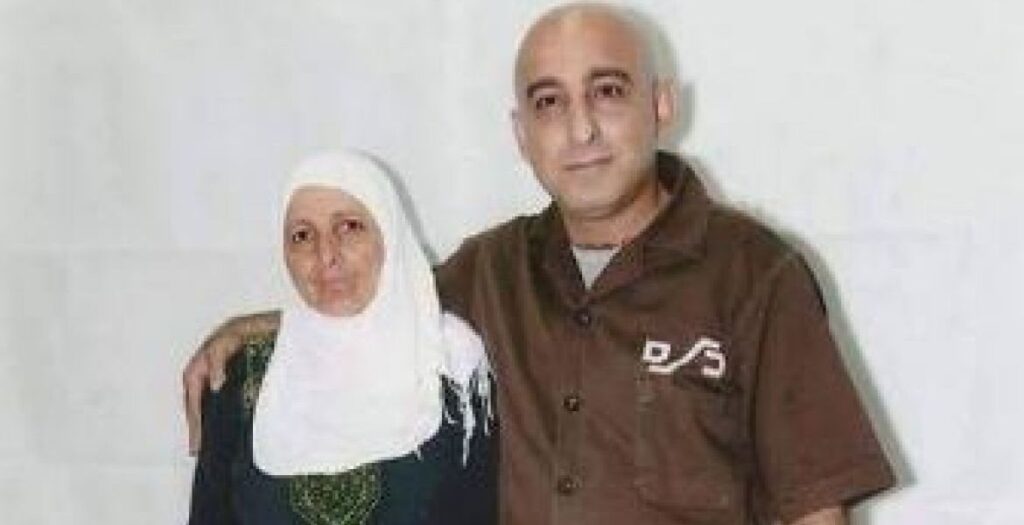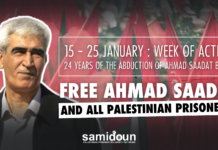
Palestinian prisoner leader and representative of the Popular Front for the Liberation of Palestine Kamil Abu Hanish will be released from isolation and returned to the general prison population early next week, Palestinian prisoners announced on Monday, 9 January. The agreement came only hours after Abu Hanish announced that he would begin an open hunger strike for his release from isolation.
The PFLP prison branch had earlier announced that it would begin protest steps if Abu Hanish was not released from isolation. It was agreed through a series of negotiations with the prison administration that Abu Hanish will be released from isolation early next week. Handala Center for Prisoners and Ex-Prisoners said that this “confirms the importance and the impact of the collective battles of the will waged by the prisoners against the prison service, forcing the occupation to accept the demands of the prisoners.”
Abu Hanish, from Beit Dajan village east of Nablus, has been imprisoned since 15 April 2003 and is serving nine life sentences for his involvement in the Palestinian armed resistance in the second intifada.
Also on Monday evening, Israeli prison guards in a repressive unit stormed section 9 in the Negev desert prison, attacking the prisoners and transferring a number of them. Prisoners affiliated with Fateh said that 120 prisoners were transferred to other sections and prevented from taking their cold-weather clothes with them.
15 Palestinian prisoners are currently held in long-term solitary confinement, some for years. Widely recognized as a means of psychological torture, long-term solitary confinement for Palestinian prisoners usually is also accompanied by the denial of family visits, also under the pretext of “security.”
Palestinian prisoners have conducted major struggles against isolation, including the 2012 Karameh hunger strike which led to the ending of the isolation of 17 Palestinian political prisoners. The Palestinian prisoners currently held in solitary confinement are:
1. Hussam Yousef Omar, isolated for 3 years
2. Musa Soufan, isolated for 3 years
3. Nooredin Amar, isolated for 3 years
4. Ramzi Obeid, isolated for one year
5. Shukri al-Khawaja, isolated for 2 years
6. Mohammed Jubran Khalil, isolated for 2 years
7. Alaa Ahmed Salah, isolated for one year
8. Hassan Khaizaran, isolated for one year
9. Majdi Atiya Musallam, isolated for one year
10. Ashraf Abu Srour, isolated for 6 months
11. Fares Baroud, isolated for 2 years
12. Anas Jaradat, isolated for one year
13. Ramiz Al-Haj, isolated for 6 years
14. Hamza Zahran, isolated for one year
15. Nimer Rubayah, isolated for 5 months
Discover more from Samidoun: Palestinian Prisoner Solidarity Network
Subscribe to get the latest posts sent to your email.




